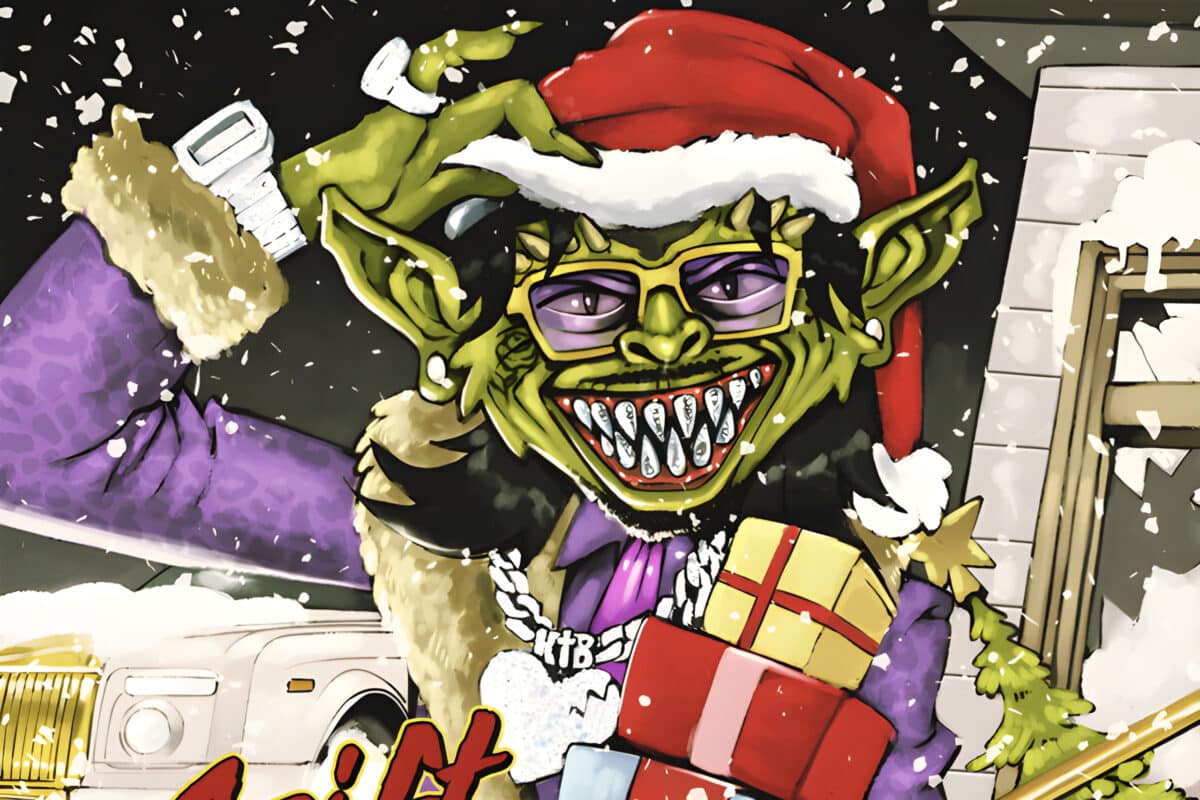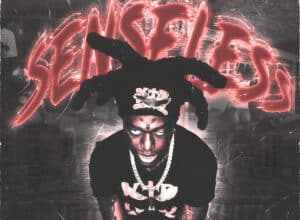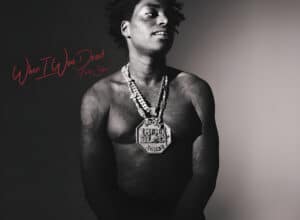Released: 2024
Kodak Black’s “Nightmare Before Christmas” serves as a complex portrayal of a man caught between the pull of a gritty, often violent lifestyle and the desire to find solace and redemption. Through candid lyrics, Kodak reveals the juxtaposition of living a life immersed in the streets while yearning for something more substantial, particularly in terms of relationships and self-identity. This track uses dark imagery and sharp, illustrative language to express his internal conflicts and desires.
The song’s opening line immediately grabs attention with a raw admission of how staying out of love feels essential to self-preservation. Kodak seems to equate emotional entanglement with a potential loss of control, showcasing a fear of vulnerability. The repetition of phrases such as “fuckin’ and thuggin'” alongside “getting money” creates a portrait of a lifestyle where he is perpetually on the move, avoiding commitment at all costs. His tone is unapologetically brazen, aligning with the overall theme of hustle over heart.
When Kodak refers to himself as “the nightmare before Christmas,” he’s utilizing a vivid metaphor to emphasize his self-image as a looming figure of unpredictability and dread, possibly alluding to the unexpected troubles he brings, akin to Jack Skellington’s character from the titular movie. This depiction extends to his mention of a fish tank without fishes and being so far into his world of turmoil that even “Nemo couldn’t find” him, metaphorically emphasizing his feelings of isolation despite being constantly surrounded by chaos.
The verses shed light on his continuous hustle and unwavering dedication to making it through adverse situations, perhaps even expressing a determination not to betray the person he once was before achieving success. When he talks about not “changing on nobody” but people failing to “see” him, it reveals his constant grind, highlighting that despite being away or absent, his efforts and focus remain steadfast, indicating loyalty to his roots.
In his stark declaration about being a “thug” yet “spreading love,” Kodak juxtaposes harsh reality with genuine compassion, signaling an awareness of duality within his character. While society may label him as rough around the edges, there is a consciousness of community service—giving back to the “youngin’s” in the neighborhood—underlying his brash exterior. His admissions paint a picture of a complex individual, motivated by both survival instincts and a sense of responsibility.
There is a vulnerability cloaked in bravado, especially when Kodak reflects on being manipulated by those he should trust. This part of the narrative indicates his struggles with deceit, drawing a line between loyalty and betrayal. He accuses others of creating “shitty situations” for their own gain, illustrating the constant wariness required to navigate his social circles. The vivid imagery of someone “lacing” another, with all the conniving connotations it entails, echoes through his lines, painting a dark and vivid picture of the kind of betrayal that stings deeper when it comes from familiar faces.
As the track unfolds, Kodak shifts to addressing personal issues with potent lines like “MJ my baby mama so I buy her Marc Jacobs.” Here, he reveals another dimension of his lifestyle—success and responsibility intersecting. This verse combines intimacy with materialism, emphasizing a recurring theme in hip-hop where financial success translates into means of providing for loved ones, or as a way to mask the less tangible emotions that money can’t heal.
In closing verses, Kodak cements his position in the hierarchy of his world—self-proclaimed as a “shot caller” and “shot taker.” He confronts those who might wish him harm, drawing lines between his level of grit and others’. Kodak paints a picture of perseverance and dominance; it’s his survival strategy in a life that seesaws between legal and street elements. “All these elevators stepping take the staircase” underscores the sentiment of maintaining his journey’s authenticity despite obstacles, indicating his willingness to put in the work when shortcuts might fail.
There is a mixture of irony and assertiveness in his claim of being “too rich to just be hanging,” which suggests awareness of the dissonance between his origins and current status. Yet, this doesn’t diminish his roots or his ongoing engagement with his community. His continual shoutouts to Pompano show pride in his hometown, highlighting how deeply his upbringing and background have shaped him. He remains, as the lyrics express, both committed to the young and “bangin'”—flaunting local pride and street credibility alike.
Ultimately, “Nightmare Before Christmas” serves not just as a song but a narrative echoing the challenges of staying true to oneself amid prosperity and treachery. The references and reflections in Kodak’s lyrics are steeped in the larger tradition of hip-hop’s storytelling—melding personal saga with universal themes of struggle, resilience, and identity. These factors provide a nuanced look into the dichotomies faced by individuals navigating through both success and the haunting shadows of their past.








